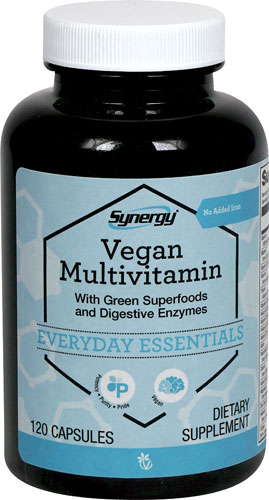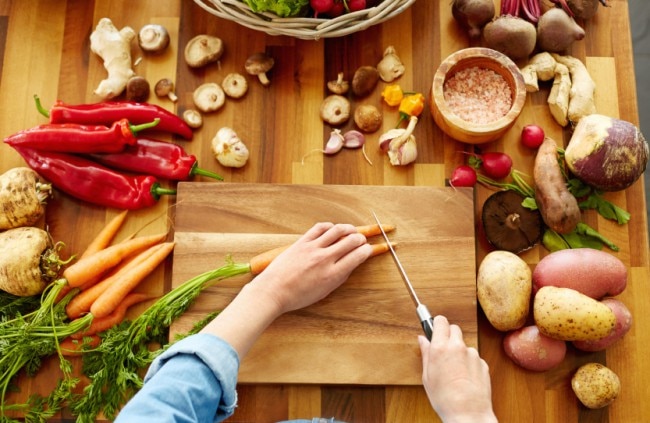The health benefits of a vegan diet are as bountiful as a farmers market. Chief among the benefits, according to doctors at the Mayo Clinic, are improved odds of fighting off high blood pressure, type 2 diabetes, obesity and cancer.
Yet those same doctors caution that a poorly planned vegan diet can rob you of six vital nutrients: vitamin B-12, iron, calcium, vitamin D, protein and omega-3 fatty acids.
Dr. Heather Fields and her colleagues at the Mayo Clinic in Arizona recently published research that raises concerns about nutrient deficiency among vegans. A lack of the six nutrients pinpointed in the research carries implications related to neurologic disorders, anemia, bone strength and other health problems, Fields says in a Mayo Clinic news release.
According to Fields and her fellow researchers, vegans who are most at risk of nutrient deficits are:
- Children
- Women with heavy menstruation who may lack iron
- Pregnant women
- New mothers
- Breastfeeding mothers
If you’re following a vegan diet and fall into one of those categories, experts recommend tweaking your diet to ensure you’re getting the key nutrients. Here’s how to do it.
Vitamin B12
Vitamin B12 is found only in animal foods. Because vegans don’t eat dairy, beef or other animal-based products, they must find other ways to get B12, says Peg Haust-Arliss, a vegan lifestyle coach. She notes that B-12 actually comes from soil that animals ingest.
Among the B12 sources that vegans can tap are fortified cereals, fortified soy products (like tofu), rice milk and vitamin supplements.
Mitra Shirmohammadi, a registered holistic nutritionist, says that although some forms of nutritional yeast contain B12, it’s not advisable to rely on nutritional yeast as the sole source of this vitamin.
Why is B12 important? According to the National Institutes of Health, B12 keeps the body’s nerve and blood cells healthy, and it helps manufacture DNA.
Iron
Registered dietitian Rene Ficek, the lead nutrition expert at meal delivery service Seattle Sutton’s Healthy Eating, says iron deficiency is common among those following a vegan diet.
“Although there is some iron fortified in grains and cereals, iron from red meat is the most readily absorbed form of iron,” Ficek says.
Of course, red meat isn’t on the menu for vegans, so they’ve got to find sources of iron elsewhere. But it’s a bit complicated. Clinical nutritionist Tara Coleman explains that iron comes in two forms: heme from animal sources and non-heme from plant sources. Unfortunately, non-heme iron is much more difficult for the body to absorb, she says.
Therefore, Coleman says, vegans must boost the amount of the plant-based sources of iron in their diets. These include beans, lentils, chickpeas, dark leafy greens, organic tempeh, blackstrap molasses, quinoa, nuts and seeds. Pairing these with vitamin C-rich fruits and vegetables like peppers, citrus, papaya, kiwi, berries and tomatoes aids iron absorption, she says.
Why is iron important? Iron is essential in blood production, UCSF Medical Center says. About 70 percent of your body’s iron is found in the red blood cells of your blood (hemoglobin) and in muscle cells (myoglobin).
Calcium
Dairy products typically come to mind when you think of calcium. While a vegan wouldn’t down a glass of calcium-rich milk, there are plenty of non-dairy options for calcium intake.
Shirmohammadi, the registered holistic nutritionist, recommends:
- Dark leafy greens like kale and collards.
- Vegetables such as broccoli, Chinese cabbage and bok choy.
- Seaweeds like kelp, nori, spirulina and chlorella.
- Organic tempeh.
- Tahini
- Almonds and almond butter.
Dietary supplements also are an option.
Why is calcium important? Among other things, this mineral builds strong bones and teeth, helps clot blood and helps transmit nerve signals, the U.S. National Library of Medicine says.
Vitamin D
For vegans, reversing vitamin D deficiency is fairly simple.
Health and nutrition coach Marina Yanay-Triner says the best way for a vegan to bump up vitamin D levels is to head outside and soak up some sun.
“To get vitamin D, a light-skinned person requires an average of 10 to 15 minutes of warm sunlight on the forearms and face, and darker-skinned individuals need two to six times that amount in time or skin exposure,” Yanay-Triner says.
Also, you can take various vitamin supplements that contain vitamin D.
Why is vitamin D important? The Cleveland Clinic says vitamin D helps absorb calcium, block the release of a hormone that makes bones thin and brittle, improve muscle function and boost the immune system.
Protein
Fortunately, vegans enjoy a veritable feast of protein choices.
Shirmohammadi says the protein buffet for a vegan includes quinoa; lentils; black beans; amaranth; organic, fermented soy products such as tempeh or natto; seaweeds such as kelp, nori, spirulina and chlorella; nuts and nut butters; and seeds like hemp and chia.
Why is protein important? The U.S. National Library of Medicine calls proteins “the building blocks of life.” Proteins show up in every cell of the human body; they help repair cells and make new ones.
Omega-3 fatty acids
For vegans, the most efficient vehicles for getting omega-3 fatty acids are sea vegetables and microalgae, such as spirulina and wakame, Shirmohammadi says. You also can take supplements loaded with omega-3 fatty acids.
Why are omega-3 fatty acids important? The Mayo Clinic says omega-3 fatty acids are thought to deliver a variety of health benefits, such as lowering the risk of heart disease and improving cholesterol levels.




